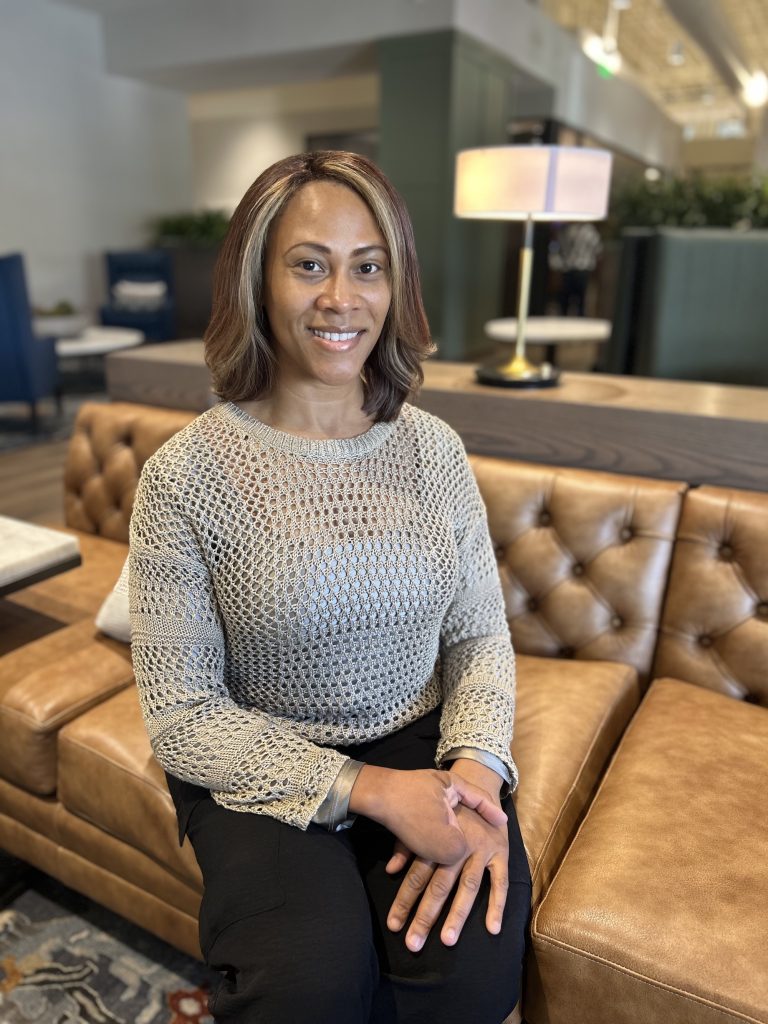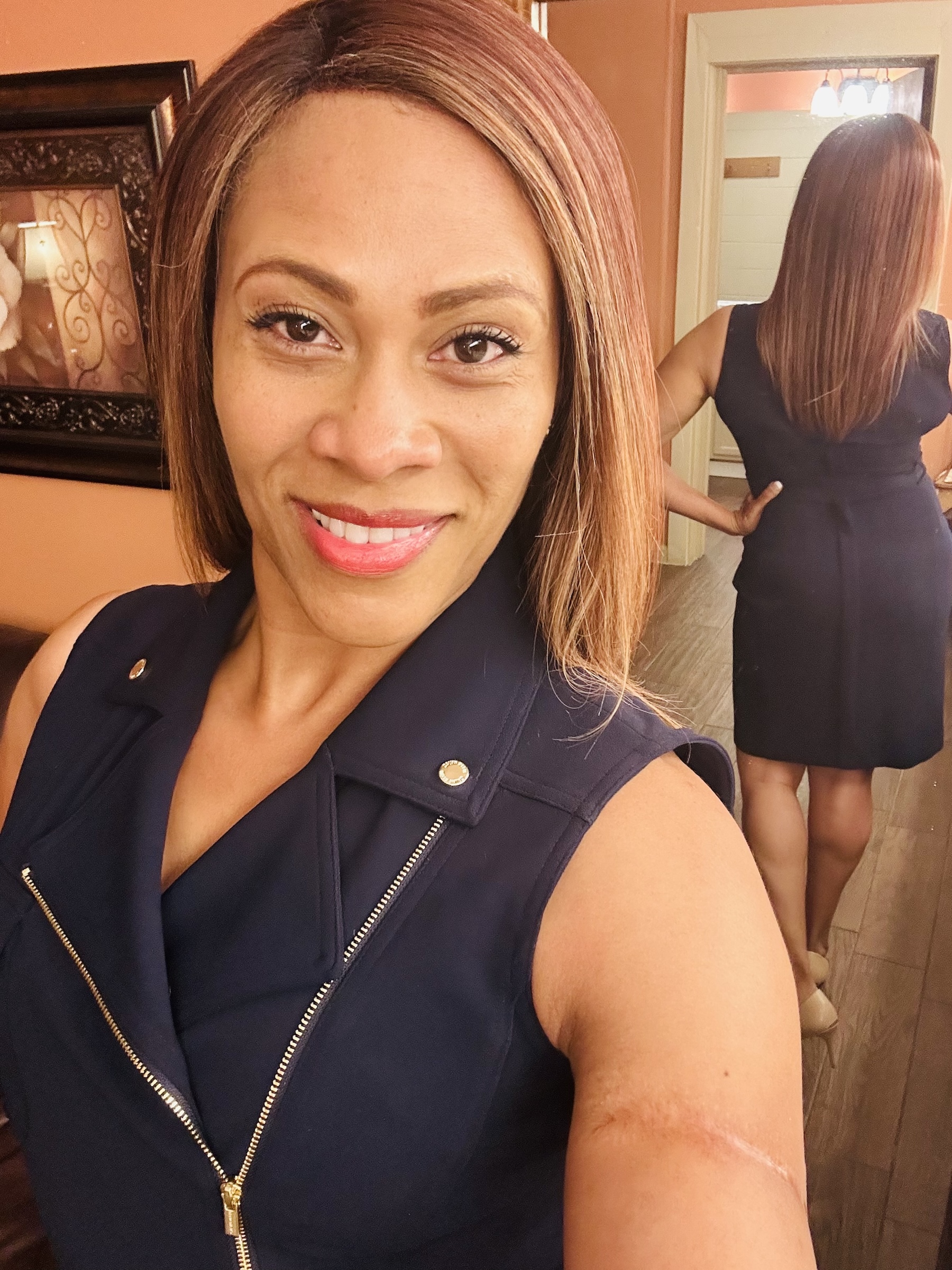I never imagined that a simple flat tire on the side of the road would lead me into a situation that would change my life forever. What seemed like a random act of kindness turned out to be a carefully orchestrated manipulation that took me down an unforgettable path.
It all started when I was on my way to a family reunion and my car broke down. I had no cell phone to call for help and no money for a tow truck. I was stranded, unsure of what to do. That’s when a truck driver stopped and offered to help. He was kind—he fixed my tire, drove to a nearby weigh station to fill it up, and then put it back on my car. Before leaving, he handed me his business card and asked me to call and let him know when I made it to my destination safely.
A week later, I decided to call him. Our conversation was casual, but it ended with him asking to meet. I thought, “Why not? He was kind to me. I owe him this.” So, I agreed.
The Illusion of Kindness
At first, everything seemed normal. He was polite and seemed genuinely interested in getting to know me. Then the relationship went from meeting for dinner to him asking me to move in after three months. I, in the naivety of youth, agreed, but soon after, I would experience some things that appeared to be off.
It started with small things—checking in too often, wanting me to spend all my time with him, and taking me to the jeweler to find an engagement ring!
I didn’t see it as control at first. I told myself he was just being caring. But as time passed, it became clear that this “care” was actually manipulation. He began to isolate me from my friends and family, guilt-tripping me when I spent time with others, even restraining me at times when no restraint was needed.
The Unseen Control
What I didn’t realize at the time was that his initial act of kindness was just the beginning of his control. He made me feel dependent on him, slowly wearing me down until I felt like I couldn’t do anything without him. He was always there, and it seemed like he was just trying to help. But, looking back, I now understand how his every action was meant to make me more reliant on him.
After five months of enduring controlling and abusive behavior, I reached my breaking point. I couldn’t take it anymore and decided the best thing for me to do was to move out, but I had to do it while he was at work.
Getting settled in my new place was a delightful experience, even going to work and not having to worry about checking in with someone every second of the day.
One day while at work, I received a call from him, stating he was sick. I knew he was disturbed but had never heard him like this before. After work, I went to assist him. Even though I heard a voice telling me not to go, I turned up the music and proceeded to his home.
When I arrived at his place, he answered the door and invited me in like nothing had changed. We sat down to watch TV, but it didn’t take long for the conversation to turn serious. He started questioning me about moving back in with him, even offering to pay the rest of my apartment lease. The offer sounded tempting, but I quickly reminded myself and him why I left in the first place.
He then walked to a nearby closet, pulled out a shotgun, and directed it at my face. I guarded my face by placing my hand over the barrel, and the gun went off, causing traumatic injury to my right hand.
I realized I had no choice but to fight my way out of there. But when I looked back, I saw the shotgun pointed directly at my back. The gun went off a second time, and its shot went through my left arm and grazed through layers of skin across my heart. I still saw that I could run and broke free from the house and began running for my life.
During the ten days I spent in the hospital, I learned just how badly I had been injured. The doctors informed me that they had to remove several of my fingers in order to stop the infection from spreading. It was a harsh reality to face, but they tried to reassure me, telling me, “You will be fully functional,” as if that was supposed to comfort me.
At the time, it didn’t feel comforting. The idea of losing part of myself—my fingers, something I had at times taken for granted—was difficult to process. But I had to believe that I could still move forward, that I could adapt and rebuild my life.
My grandmother had always encouraged me to follow my dreams, and one of those dreams was to become a cosmetologist. Her words pushed me to take that step of faith, and I did. It wasn’t easy, but with every step, I grew stronger, more confident, and more determined to prove that I could overcome anything.
While in beauty college, I discovered a company that would help me create a customized shear that would allow me to do my job and continue to operate in my purpose.

As I began to understand my purpose, I began to forgive and let go of the idea of myself that didn’t serve me as an overcomer. I also embraced the idea of changing the narrative of beauty according to the standard set by society. I’m thankful for my story because it taught me that truly no man can take away the gifts that God gives you and that my life is to be a manifestation of the glory of God that gives strength, inspires, and transforms the lives of others.
– Written by Larissa Camp
A Message From DWD
Larissa Camp is a dynamic and accomplished sista, and we are proud to introduce her to our Divas With Disabilities community. Not only is she a master stylist and thriving author, but she is also a powerful public speaker.
Much more than a survivor, she continues to support her community through various acts of service, including providing resources through charity drives and more. Advocating against gun violence and domestic violence by spreading awareness through her blog Larissaslovenotes.com, she is a living testimonial and blessing to those she serves.
When people we think we know become strangers, and love turns violent in the blink of an eye, countless lives are at stake. In fact, for black women, finding support, community or romance can be more dangerous than it is for others. According to “Domestic Violence against Black Women” (University of Illinois Chicago), black women are killed three times more often than white women by men.*** Add intersections of ability, age, sexual orientation or economic class, and the chances of violence increase dramatically.
Because of the risk for violence that black women face, those who experience abuse or see signs of potential abuse should get help immediately. In some cases, you may need to seek the assistance of law enforcement without delay.
You may also seek assistance through the National Domestic Violence Hotline by visiting https://www.thehotline.org/, calling 800-799-7233, or texting START to 88788.
Don’t wait until it’s too late!
*** Domestic Violence against Black Women | Women’s Leadership and Resource Center | University of Illinois Chicago. (n.d.). https://wlrc.uic.edu/bwdv/


